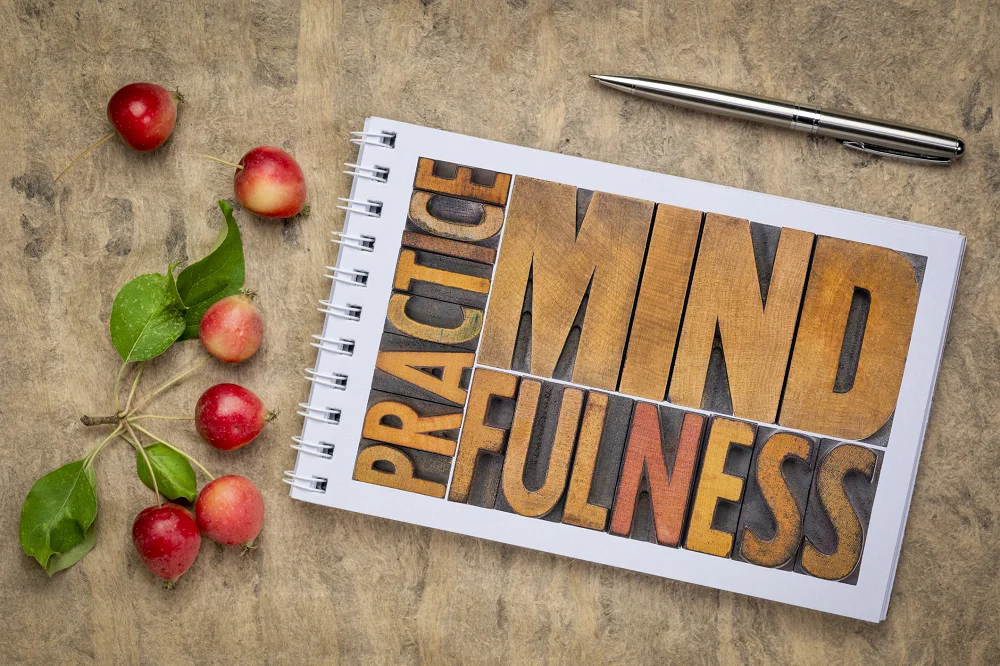When my clients are looking to improve their overall happiness and well-being, one of the first things I suggest is starting a mindfulness practice. As one of the simplest and most broadly effective strategies there is, implementing mindfulness almost always leads to improvements. Of course, it’s not a magic solution to all of our problems, but research has shown that it can broadly improve our well-being.
Defined as a non-judgmental awareness of the present moment, mindfulness can help us regulate our emotions, cope with difficult experiences, improve our focus, communicate more effectively, and be more compassionate towards ourselves and others. Studies have also shown that when someone is thinking about something other than the current moment, they report feeling less happy than if they were focused on the present. This is true even if the thoughts they were thinking were pleasant or happy! [1]
If you’d like to try out this valuable practice for yourself, there are so many ways to make it work for you. Yoga and meditation, both “formal” mindfulness practices, are highly effective if you’re into them. But the best part about mindfulness is that it can be practiced by anyone, anywhere, anytime. All you need to do is, for a moment, bring your attention to the present.
What do you see, feel, hear, smell, and taste? What does your breath feel like as it enters and leaves your body? What is it like to exist, to be you in your body, right now.
- Killingsworth MA, Gilbert DT. A wandering mind is an unhappy mind. Science. 2010 Nov 12;330(6006):932. doi: 10.1126/science.1192439. PMID: 21071660.



